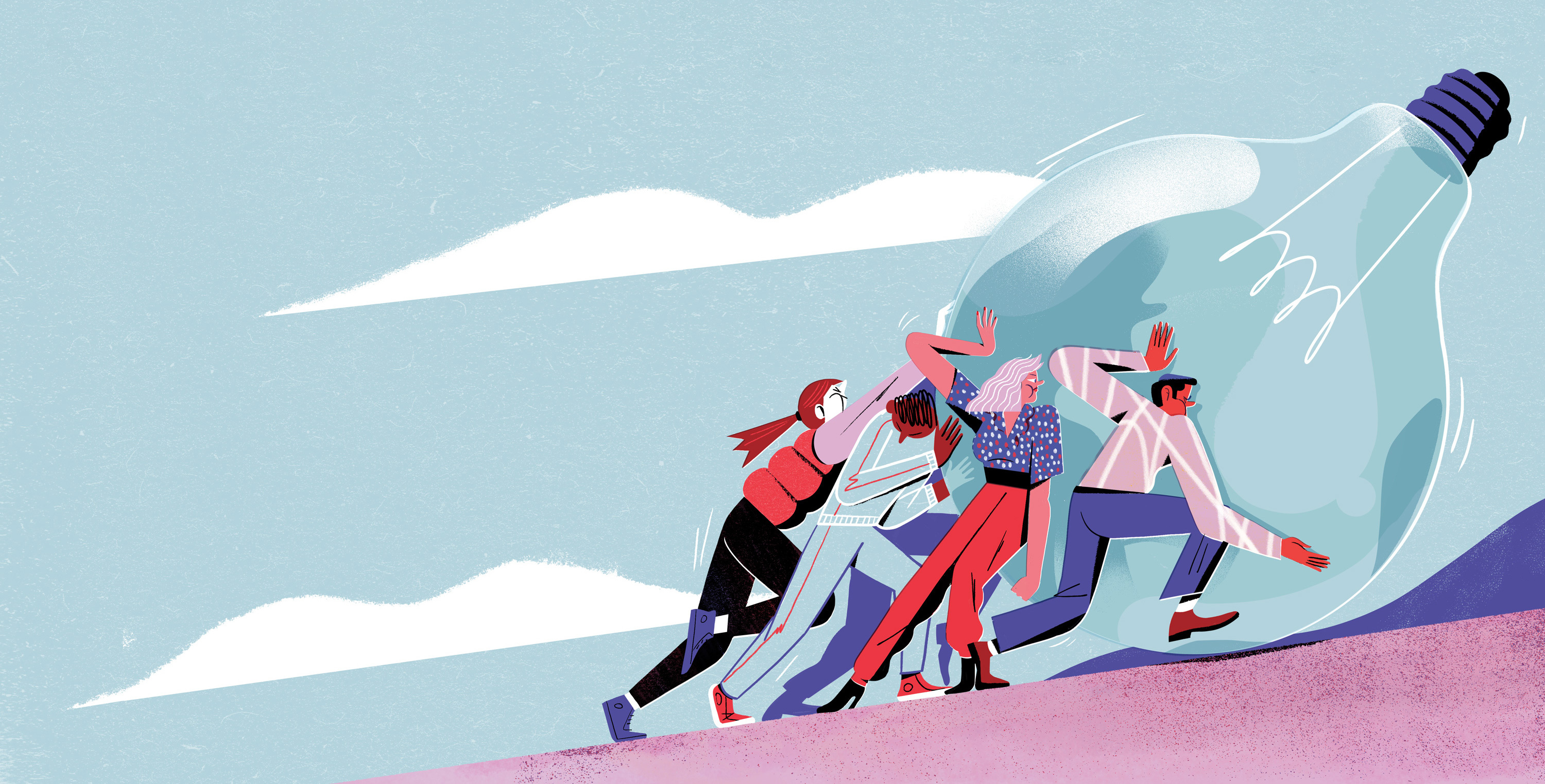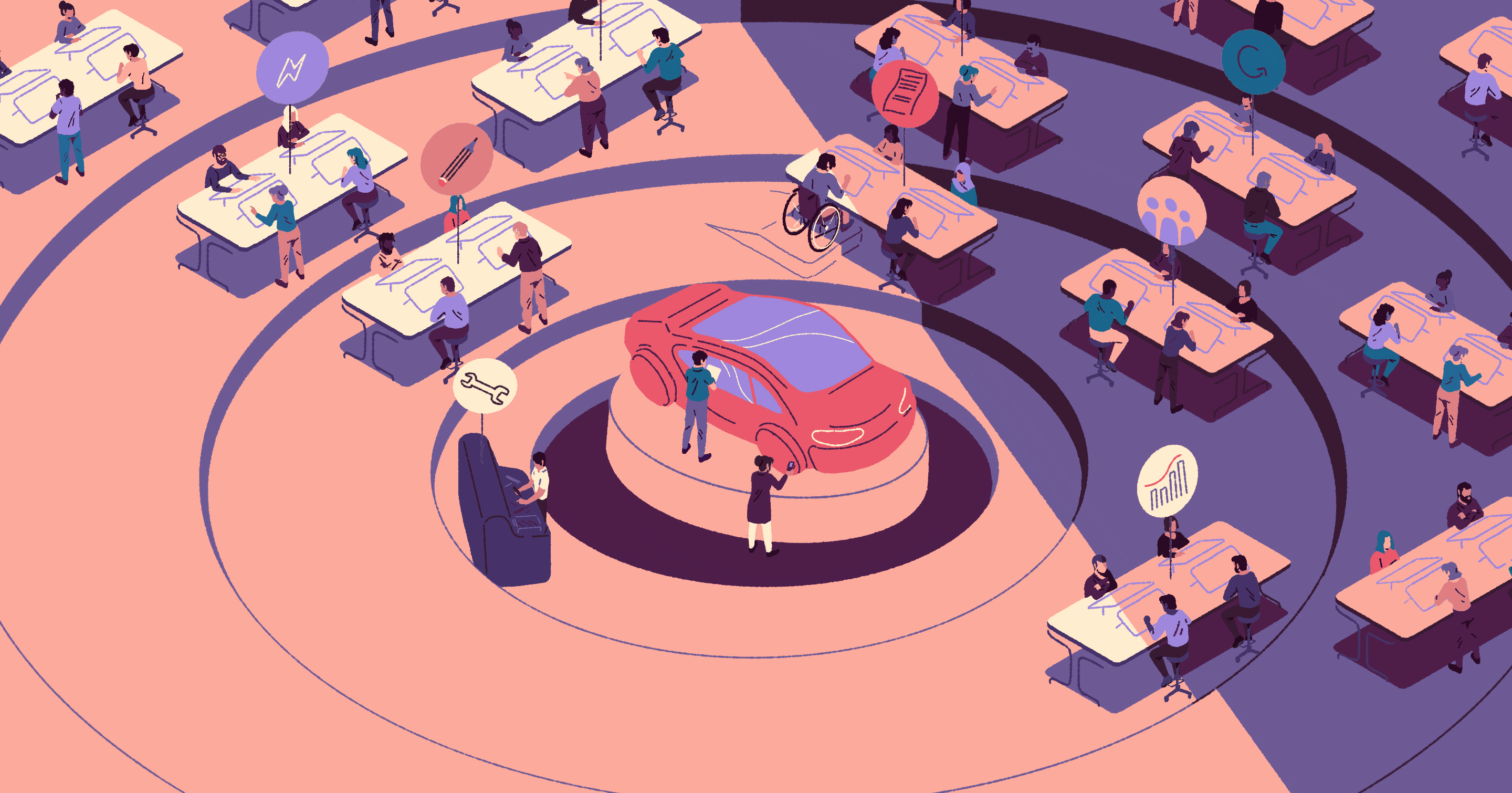We Can’t Take Decades to Act

The once radical notion of leveraging business to address societal problems has become mainstream. As of 2017, 85% of Fortune 500 companies reported their environmental and social impact—an astonishing 65% increase since 2012. By this metric, the notion of corporate social responsibility (CSR) is verging on ubiquitous.
Beyond CSR’s spectacular rise, several other indicators signal a growing belief in the role of business and innovation in addressing societal problems: 88% of millennials say they will only work for values-aligned companies, and Blackrock CEO Larry Fink demanded publicly in 2018 that companies be driven by purpose. Fink calls for a new model of corporate governance:
Society is demanding that companies, both public and private, serve a social purpose. To prosper over time, every company must not only deliver financial performance, but also show how it makes a positive contribution to society.
Larry Fink, Blackrock
That’s the CEO of a company managing $6.5 trillion in assets pushing for the same economic shift demanded by today’s youth: to ensure that innovation serves a social purpose. Mainstream box: check.
But experts are skeptical. In her opening presentation at last year’s Social Innovation Summit, Caroline Barlerin, former Global Head of Social Innovation at Eventbrite, asked, “Is the mainstreaming of social innovation something to celebrate? Is it enough?”
The answer is no. Not enough, not even close. While CSR reporting and growing social innovations are surely positive developments, they also reflect an insufficient response by the private sector, civil society, private philanthropy, and government to today’s global challenges.
Rather than count how many companies have begun to invest in CSR efforts, the real measure of progress is how we’re faring against the challenges of our time. Whether you focus on global climate change, the United Nations’ sustainable development goals, or the health and wellness of the fabric of our society, it’s clear that whatever “mainstream social innovation” is, it’s not enough.
As we enter 2020 and head toward momentous change in the US and the world, we also need to enter a new phase of social innovation. Three important changes will help us get there.
1. From innovations to ecosystems
Just as the complex biological system of a rainforest allows individual plants to flourish, so do complex entrepreneurial ecosystems work to help social innovators succeed. Healthy, diverse, and inclusive ecosystems allow talent, information, and resources to flow quickly. These networks can’t be bought, they have to be built. Andy Stoll, Kauffman Foundation
Today’s societal challenges require vibrant systems of diverse innovators attacking societal problems from many angles. Investment needs not only to support scaling, but also to create the conditions that allow entire fields of innovators to advance. As Managing Director of OpenIDEO—IDEO’s participatory, decentralized innovation platform—I’m inspired every day by the thousands of innovators who we support, a reminder that there’s never been more human energy and creativity directed toward global challenges. After years of leveraging open innovation to create a pipeline of promising concepts and ventures, OpenIDEO now strengthens entrepreneurial ecosystems to address pressing societal challenges collaboratively.
In 2016, OpenIDEO worked with a consortium of partners to introduce the Food Waste Challenge, a program that sought to address the 40% of food that goes to waste in the United States. Rather than selecting a small number of winners, we created the Food Waste Alliance, a virtual network of 80 organizations that proved pivotal to the development of several food waste startups still growing today. Realizing the potential for ecosystems to create greater impact over time, we designed OpenIDEO’s 2018 Early Childhood Innovation Prize to advance an entire sector of innovators in the early childhood development space. After 30 teams of entrepreneurs were selected and received a share of $1 million in grants, OpenIDEO and our partners at Gary Community Investments then launched a virtual accelerator and partner network, which brought together innovator teams and institutional partners to advance winning ideas.
The program eventually transitioned to two new accelerator networks fully dedicated to early childhood innovations, Promise Venture Studios and Futurebound—long-term, ecosystem-building initiatives sparked by the initial open innovation program.
To create breakthrough change, all of us must work together. That means platforms and tools like prizes or challenges that transparently support people to develop their best ideas and collaborate.
Steffanie Clothier, Gary Community Investments
2. From delivery to co-creation
Increasingly, funders and innovators alike are recognizing the need for solutions to be truly rooted in the needs of those they’re trying to serve. In their recent Stanford Social Innovation Review article, The New Practice of Public Problem Solving, Tara McGuiness and Anne-Marie Slaughter note this as one of four major trends:
The relentless focus on what users need and how they experience services brings people into the process of providing feedback for services where they have not traditionally had a voice.
Tara McGuiness and Anne-Marie Slaughter
While the growing interest in human-centered design is a positive step forward, the next chapter of social innovation will require another leap. Rather than just gathering user feedback on potential solutions, the people we design for will increasingly become part of design, implementation and evaluation. As technology makes it ever easier to be more inclusive, it will become unacceptable to exclude or overlook people affected by social innovations. True co-creation facilitates a greater sense of community ownership and more grassroots capacity building.
OpenIDEO has been learning about new ways to innovate alongside the communities we serve. Our 2019 BridgeBuilder Challenge—the third annual $1m social innovation prize offered in partnership with GHR Foundation—sought to better include a group that’s more often a recipient than an active participant of social innovations: displaced migrants and refugees.
We began by partnering with former BridgeBuilder Challenge winner NaTakallam to include people with relevant lived experience in creating the brief. Applicants were also expected to show evidence that the voice and perspective of a person currently or previously experiencing displacement was part of the ideation, process, and project. NaTakallam later helped us hire a group of mentors who have experienced displacement to provide feedback and mentorship for applicants, and to support the evaluation process.
3. From disengagement to connection
In 2016, a Gallup poll reported that employee engagement in the United States had returned to its highest level since 2000, when it began studying worker enthusiasm and interest. That high is disappointingly low: just 34% of our workforce feel engaged in their work. Meanwhile, according to research conducted by Opportunity Knocks in 2011, half of nonprofit workers reported either being burnt out or in danger of burn out. Taken together, these studies reflect a failure to create work that is both inspiring and reasonable. As today’s problems can only be solved by dedicating attention to them, this failure is tragic.
Social innovation can play a central role in better aligning talent to our needs by creating new jobs, helping employees become engaged in issues they care about, and fundamentally reshaping the culture of work. To make this true, a reasonable work-life balance is one obvious need. Less obvious, but perhaps just as important, is a sense of connection—both to purpose and to other people.
- Connection to Purpose: It’s important to remember that individual and organizational purpose are separate, and that understanding and supporting an individual’s purpose is as critical as encouraging focus on organizational purpose.
- Connection to People: Cultures of self-sacrifice, efficiency and competition often impede deep connection with potential allies within teams or sectors. It’s important to combat isolation and loneliness in order to maintain passion for the work.
Once or twice a year, the OpenIDEO team gets out of the office and away from our daily responsibilities for a team retreat. We use the time to look inward to better understand the aspirations bringing us all to work every day and how each of us is connected to a shared purpose.
While the challenges facing social innovators are serious, we have reason to be hopeful: today there are unprecedented levels of energy and creativity going toward improving the state of the world. That energy is humanity’s greatest resource, but it’s too often depleted by underinvesting in the ecosystems entrepreneurs need to thrive, ignoring the creative potential of people with lived experience, and failing to help employees connect to purpose and each other. Building the next chapter of social innovation will require new thinking, practices and tools. It'll take bold action and a continuous commitment to pushing boundaries, not settling for a place in the mainstream.
In 2020, OpenIDEO will continue to explore how the social sector can be advanced and adapted to tackle tomorrow’s challenges. Follow along and join the conversation.
Illustration by Antonio Sortino
Words and art

Subscribe

.svg)









